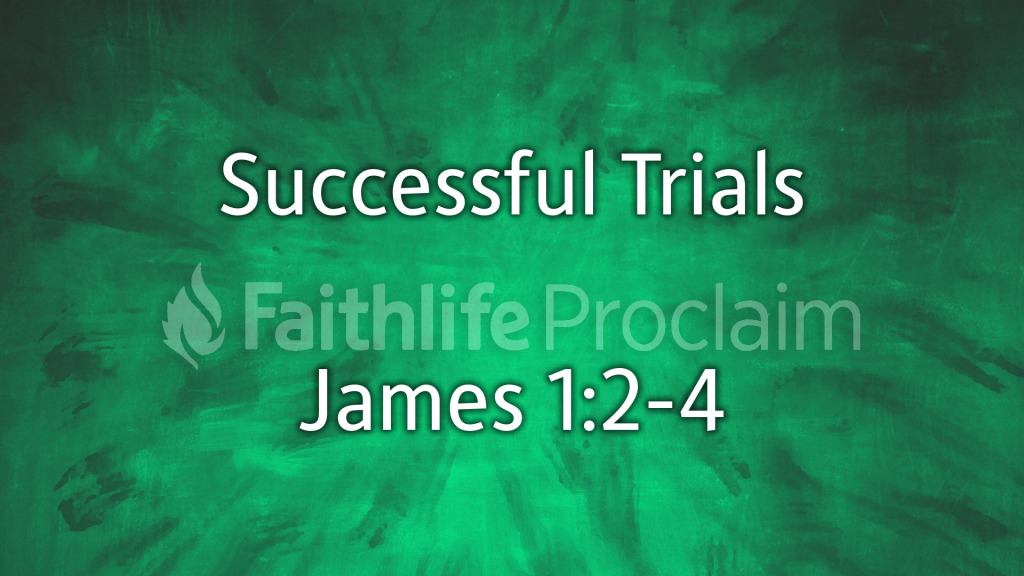WCCC
Church • 12 members • 1 follower
News
Sort by
newest
About this group
Church
group
12
members
1
followers
"Making much of God. Making disciples of all peoples."
Follow The Story of the Bible in 30 Days" is up and running. The plan has 30 predefined readings for each day of the study. Please click to join the reading plan. You can read the text for the day by clicking on the link in the reading plan. You can post your questions or comments on the main page. If you have what you feel is a new topic start a new post. If you are replying to a question or comment that is already there, click the reply button. This should help to keep things somewhat organized. Thank you.
The Story of the Bible in 30 Days" is up and running. The plan has 30 predefined readings for each day of the study. Please click to join the reading plan. You can read the text for the day by clicking on the link in the reading plan. You can post your questions or comments on the main page. If you have what you feel is a new topic start a new post. If you are replying to a question or comment that is already there, click the reply button. This should help to keep things somewhat organized. Thank you.- We pick up today in Exodus 12:37-51 and Exodus 13:17-22. Yesterday we ended with Joseph and his family arriving in Egypt with seventy people. After 430 years of oppression in the land of Egypt, the Israelites are on their way toward freedom and the land that God promised Abraham. This is after God sent Moses to the Pharaoh and brought the ten plagues upon Egypt. After the Egyptians release the Israelites, and urgently ask them to leave, the Exodus begins. This first passage in Exodus 12:37-51 tells us that the Israelites leave with about 600,000 men, plus women and children. They have all of their possessions, livestock and the treasures they collected from the Egyptians. The Israelites left Egypt like a victorious army who had plundered its enemies. This fulfilled what God told Abraham in Genesis 15:13-14. God could have taken His people on a direct route from Egypt to the land of Canaan by traveling along the edge of the Mediterranean Sea. However, He chose to take them on a long journey and cross the Red Sea. Why would God bring His people out of Egypt, with no provisions, and lead them on a path that put them at the edge of a body of water they could not possible cross on their own? One reason was mentioned in Exodus 13:17. A journey along the edge of the Mediterranean Sea would have sent them directly through the land of the Philistines. The other reason would seem to be to teach them a lesson on faith and dependency on Him. Moses took the bones of Joseph with him as they travelled. Joseph had given instructions that his bones were to go with the Israelites when they left Egypt. This was the final act of Joseph that was recorded before his death. Joseph believed that God would lead His people out of Egypt. Joseph knew that God had something greater in store for His people than remaining slaves in a strange land. What do we learn from Joseph’s final recorded actions? What do they tell us about Joseph’s faith in God, and belief in God’s promises? What should Joseph teach us about our own faith and belief in God’s promises? We see God lead His people on their journey in a pillar of cloud, as well as a pillar of fire. We are told that the pillar did not depart from before the people. How should we be comforted when we think about Exodus 13:21-22?
- Our next passage will take us from the time of Abraham and Isaac, to Israel and Joseph. Israel’s name was originally Jacob. He was the son of Isaac, who was the son of Abraham. God changed Jacob’s name to Israel, just as He changed Abram’s to Abraham. The families of Israel’s twelve sons would become the twelve tribes of Israel. In previous chapters, Joseph, who was the favorite son of Israel, was sold into slavery in Egypt. After growing up and becoming the second most powerful man in the kingdom, Joseph encounters his brothers. They have arrived in Egypt looking for food during a seven year period of famine. It is here that Joseph encounters his brothers, who do not recognize him. Joseph is kind to his family and does not seek revenge against his brothers who had sold him into slavery. He tells them to bring their father to him. In Genesis 46: 1-30 we see the journey of Israel and his reunion with his son Joseph. It is through faith, at God’s urging in visions, which Israel leaves to go to Egypt. In Genesis 46:2-3 God reveals Himself to Israel in visions and renews the promise that He made to Abraham. A total of seventy people arrive in the land of Goshen, including Joseph’s father, brothers and all of their families. Remember the covenant that God had made with Abraham. Egypt was the land that God had promised that Abraham’s descendants would be afflicted in for four hundred years in Genesis 15:13-14. However, during this time the nation would increase in number. Also, we will see how God made provision for them to leave Egypt to begin their journey to the promised land. God’s people will be enslaved, but God has a way to free them from their bondage. God has remembered His promise, and His people. In the world we live in it is common for us to communicate constantly with others. If someone does not answer our text messages in a few seconds we feel that we are ignored. If we post on social media sites and no one responds, we feel disrespected. We get upset when others don’t get back to us right away. Think about waiting for four hundred years for someone to respond and take action on something. This was the experience of Israel’s descendants in Egypt. God had something great planned, but it was going to happen in His time, not theirs. How should this impact our own responses when God does not answer our prayers immediately?
- Have you ever wondered why there is a need for so many contracts and documents and the world we live in today? If you have bought a house any time then you probably remember seeing a large stack of papers, though you probably do not remember what most of things were that you signed. Do you know why you, and the other parties involved, signed all of those papers? It was to make sure that both sides held true to the commitment that they had made. Do you know why our courts are so busy? It is because people do not hold true to the promises they make. A promise on a piece of paper means nothing, if both parties don’t intend to keep their end of the bargain. We may wonder about other people fulfilling their end of a deal, but today’s passages in Genesis 21:1-7 and Genesis 22:1-19, show us that this is not a concern with God. He always does what He says He will do. In Chapter 21, God keeps His promise to Abraham that he would have a son. Isaac was born, just as God said he would be back in Chapter 15. However, Chapter 22 is where the real test of Abraham will come. When we reach Chapter 22, a number of years would have passed. Abraham and Sarah probably would have established a life where they would have had a home, flocks, servants and a son who had become a young man. This is the setting in which Abraham would be tested. God asked Abraham to take Isaac; the son that God promised would be Abraham’s heir, up a mountain and offer him as a burnt offering. Isaac was a blessing that God had promised, and delivered. Now, God was asking Abraham to sacrifice the one thing on which all of the promises God had made depended. God did not just say that He was going to take Isaac. He was commanding Abraham to take the life of the one that he loved with his own hands. The choice to be made was to spare the life of his son, his one opportunity to be blessed with an heir, or loyalty to God, resulting in being the father of the multitudes. What did Abraham do? He was obedient. He took his son up a mountain and prepared to sacrifice him to God. Why would Abraham do this knowing what it meant? He had faith that God would provide. Notice that in Genesis 22:5 he even tells the servants that he and Isaac will go worship and return to them. Abraham knew that he could kill Isaac, but he believed that God could raise him from the dead. Read Hebrews 11:17-19. Abraham had faith that God would remedy the situation if he was just obedient. Don’t you think Isaac would have found it a little strange that he was carrying a stack of wood and everything to prepare a sacrifice, yet there was no sacrifice? There is nothing recorded of what Isaac might have said or asked. However, it seems that there would have had to be questions in his mind. It is at this point that we should stop and consider Abraham and Isaac. Abraham is an old man, well over one hundred years old, while Isaac is young and strong. Do you think that Abraham could have bound Isaac and placed him on the altar if Isaac refused? Isaac was obedient to his father. He followed his father’s instructions, as his father followed God’s. Why would Isaac do this thing? Isaac had been trained in faith and obedience by his father. If Isaac had not been obedient to his father, then this episode never would have occurred in this way. Now we move to the dramatic part of the events. Abraham stands there looking at Isaac upon the altar. He prepares to offer him as a sacrifice, drawing his knife to kill him. As he prepares to strike the fatal blow an angel appears and stops him. Abraham looks and sees that God has provided a ram in the place of his son. What a relief this must have been to Abraham! He had passed the test. He had been willing to do what God asked. He was prepared to go through with God’s command. He proved that he was faithful to God, and God proved to Abraham that he keeps his promises. Don’t you think it would have been easy for Abraham to turn his back on God when He commanded him to sacrifice Isaac? How do we respond when God asks us to do things that are hard? Do we turn our backs, or depend on the fact that God will provide for our needs? Would we still love God if he took away the gifts He has given us? Remember, God not only gives us tests in our lives so that we can prove our faithfulness to him, but they are a way for God to display His faithfulness to us, to the world. God provided a ram to be sacrificed in Isaac’s place. Jesus, the Lamb of God, was sacrificed in our place. God has provided for our needs, the sacrifice to cover our sins, we only need to accept His gift, the promise of eternal life, in faith.
- Today's reading, Gen 15:1–21 and Gen 17:1–8, looks at the covenant that God made with Abram. God begins in chapter 15 by promising Abram an heir, his own son. God also promises that Abram's descendants will inhabit the land from the Nile to the Euphrates. God promises Abram that his descendants will inherit the land after a 400 year period as sojourners and servants in a land that is not theirs. God goes on to make a covenant with Abram. God causes Abram to fall into a deep sleep while God performs act of making the covenant. Why do you think God would have made Abram fall asleep and not pass between the animals as He did? Remember Genesis 8:21. In chapter 17, God extends the reach of his agreement with Abram. He will not only make Abram an "exalted father", as his name meant, but changed his name to Abraham, meaning "father of the multitudes." Also, his descendants will not only be promised the land for a period of time, but forever. The most significant promise that God made to Abraham is that his descendants will know Him as their God. Think about the fact that Abraham had to follow God's will and have faith. Yes he stumbled along the way, everyone does. However, it was Abraham's faith that was counted to him as righteousness. Where did Abraham's faith come from?
- Today we look at the call of Abram in Gen 11:27–12:9. We have moved forward approximately 300 years from the time of the flood. God tells Abram in Genesis 12:1 to leave his country, his relatives and home to go to a land that He will show him. This is not a small thing. This is not giving up hamburgers, smoking or watching television. This is leaving the land, the people and familiar surroundings Abram had known his entire life to follow God's will. God says that He wants Abram to leave it all behind to go to another place. God does not even tell Abram where this place is located. He essentially says that He will tell Abram where the place is when he arrives. What does God say in Genesis 12:2-3 that He is going to do if Abram obeys? God will make him a great nation, bless him, make his name great, bless those who bless him and dishonor those who dishonor him. The last of these promises is that in Abram all of the families of the earth shall be blessed. These promises sound great. So what's the problem? The problem is that all of these promises hinge on Abram's obedience to God. He must believe that God will bring these things to pass. Abram must believe that those things that he has not yet seen will occur. Without belief there will be no action. Genesis 12:4 tells us that Abram went as the Lord told him. It doesn't say that he thought about it, surveyed his friends or made excuses. He simply obeyed. He went, not because it was the easy thing, not because it was the rational thing, not because it was the most profitable thing, but because God said go. It would have been easy to think of plenty of reasons why he could not follow God. Tomorrow we will see the changes in Abram's life and name because he followed God. We will also see the plan of God continue to make a way for His people through sacrifice. A sacrifice that points forward, foreshadowing the ultimate sacrifice made on the cross. What do we call Abram's belief in God's ability to bring about those things which he had not yet seen? What if God were to give any of us the command today to give up everything and follow Him? What should our response look like? What would our response look like?
- When God called Moses, he came up with one excuse after another. When God told Gideon to fight, he had to have multiple proofs it was God talking. But Abrams didn't make excuses or hesitate.
- Today's passage, Genesis 8:20-9:17, brings us to God's covenant with Noah. It is at this point that we might think the problem is solved. If God wiped all of the evil people from the earth during the flood, then the issue has been resolved. However, this idea is crushed almost immediately in today's passage. By looking at Genesis 8:21, we know that after the flood mankind is still sinful, God still hates sin and God still intends to bring glory to Himself through His creation. Genesis 8:21 says that the intentions of men are still evil. The incident between Noah and Ham in Genesis 9:20-25 will serve to remind us of this fact. We also remember from yesterday that Noah was not good of his own accord, it was the grace of God. We know that even though God has shown Noah grace, He still hates sin. God will still judge, and punish, sin. If God hates sin and will judge, and punish sinners, why would He not destroy the entire world and give everyone what they truly deserve? The simple answer is for the sake of His glory. God will not give up being glorified by His creation. He has created man in His image to put His glory on display. He will not fail. God gives Noah the sign of the rainbow to remind man, and Himself of the His promise. His glory cannot be displayed in His creation if he constantly destroys it for its sin. So what is the solution? Sacrifice. Noah brings a sacrifice, a burnt offering, before God. The aroma pleased God, and He blessed Noah and his sons. This is the process of sin and atonement through sacrifice that we will see throughout the Old Testament. However, it is all pointing forward to one sacrifice that will be sufficient to cover all sin. Romans 5:18-21



